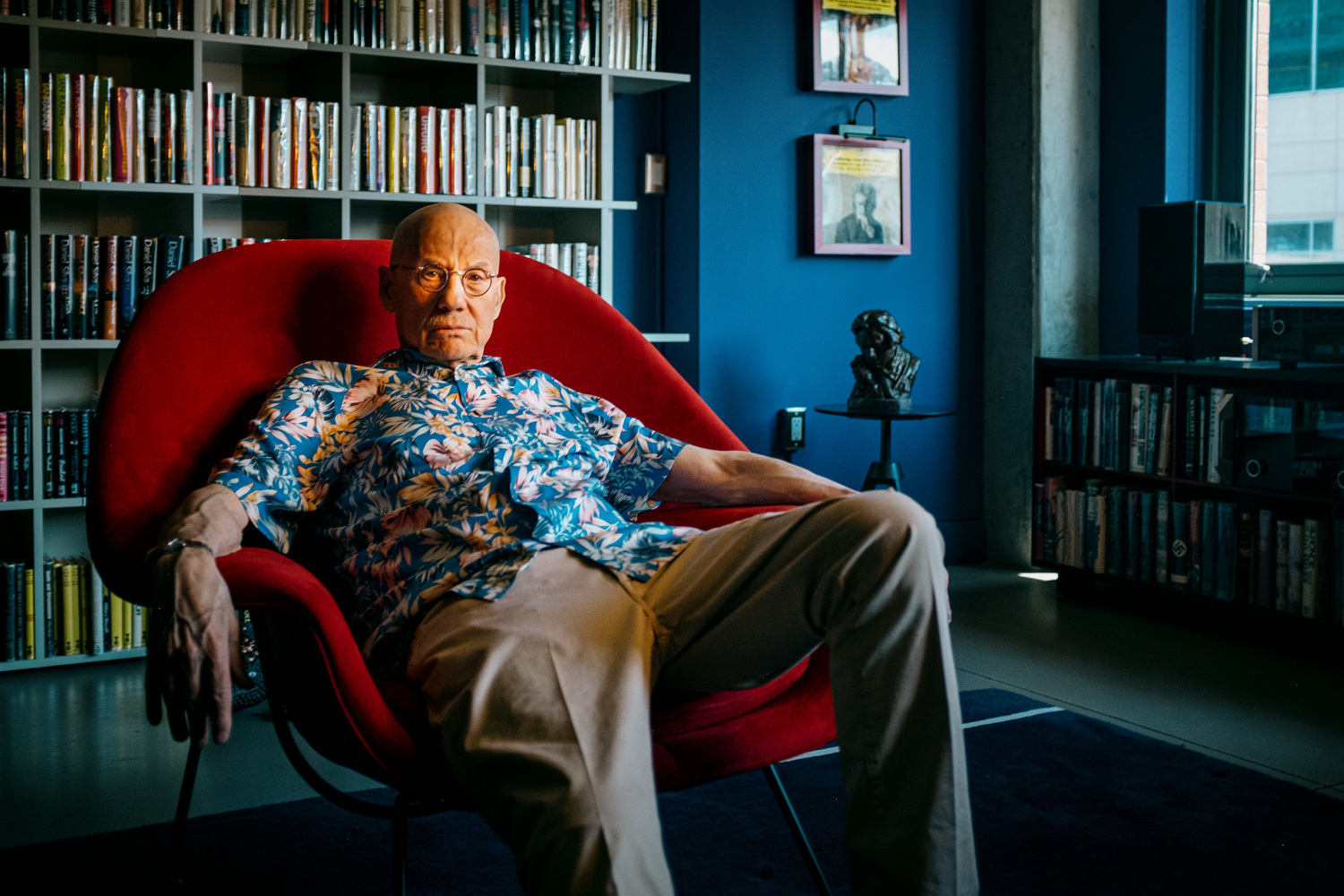
The Life and Legacy of James Ellroy
Steven Powell's new work on Ellroy is an ambitious biography and a fascinating glimpse into the mind of "the Demon Dog."
NOTE: This fragment of an interview is a republication- Source: CrimeReads (Andrew Nette).
Steven Powell’s just released book Love Me Fierce in Danger: The Life of James Ellroy is an ambitious biography of one of American crime fiction’s most influential and controversial figures. Powell, an Honorary Fellow in the English Department at the University of Liverpool, UK, wrote the book with Ellroy’s cooperation. It is a sustained piece of literary scholarship that combines an in-depth analysis of the author’s multifaceted career with deep insights into his personal history and life.
AN: This is your fourth book on the writer James Ellroy. What is it about him as an author and literary figure that you find so interesting and worthy of a fully-fledged literary biography?
SP: With each previous book, I’d unearth new material and nuggets about Ellroy’s life that were not previously in the public domain. A paradox began to emerge. Ellroy is a skilled and energetic self-publicist who has gone over key moments of his life-story, such as his mother Jean Ellroy’s unsolved murder, many times. But there were just as many moments in his life, if not more, that he hasn’t talked about. His two memoirs, My Dark Places and The Hilliker Curse, leave decades of his life unaccounted for. I began to realise I could tell his complete story in a literary biography which unearthed new material on Ellroy and put together disparate material on him into a reasonably linear narrative. I firmly believe that love or loathe him, Ellroy is a titan of American literature, of the same historical importance as Hemingway, Mailer of Vidal. That’s a story that needs to be told.
AN: How would you analyse Ellroy’s impact on the crime fiction genre? You write early on in Love Me Fierce in Danger that ‘Ellroy’s life is the great untold story of American literature’, which obviously infers that his influence goes far beyond a single genre.
SP: Joyce Carol Oates described Ellroy as ‘the American Dostoevsky’. Ellroy was instrumental in bridging the gap between the crime genre and literary fiction. Raymond Chandler and Dashiell Hammett might be considered major figures in American literature now, but they never achieved that distinction in their lifetime: Ellroy has. Through his willingness to embrace experimentation in prose and plotting Ellroy created his own Ellrovian style which readers recognise, and authors emulate. His fierce competitiveness means he is still striving for greatness in his third act, even if it sometimes alienates his readers. Take a novel as divisive as Perfidia. Ellroy conducted a huge amount of research into the outlining and planning of this novel which portrays, in minute detail, day-to-day life in wartime Los Angeles. The result was both brilliant and challenging, some might say maddening, but unlike anything else I have read in modern American crime fiction.
You can read the whole interview here